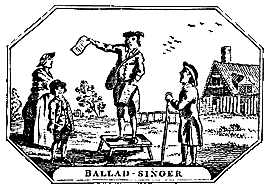Medieval Scandinavian Ballads
 |
|
 |
[Germanic Mythology: Fornaldarsögur Nordurlanda]
Svenska Fornsånger, Volume I
Compiled by Adolf Iwar Arwidsson
[The Tale of Thrymskvida]
II. Thord of Meerseburg
och Lang-Ben-Rese i Bertilaland
and the battle with the Long-leg giant
Audio by Skadi Press
"The Grogaldr and Fiölsvinns-mál (i.e., the Charm of Groa and the Song of Allwise), which we have only as separate poems, have been recognised as parts of one original poem by means of the still living Danish ballad of 'Young Svendal," which evidently has sprung out of them by a process of modernization." —Fraser's Magazine, 1861
Sophus Bugge, "Excursus on Svipdagsmál": Partial translation of Ungen Svendal and another ballad (1856)
Hertig Silfverdal, Svenska folk-wisor från forntiden Erik Gustaf Geijer & Arwid August Afzelius (1814)Ungen Svendal in Svend Gundtvig's Danmarks gamle folkeviser: Vol II: Trylleviser, no. 70 (1856)
Young Swennendal in R.C. Alexander Prior's Ancient Danish Legends, Vol. II. (1860)
Young Swaigder, or The Force of Runes, Translated by George Borrow (1913)
Young Svejdal in Axel Olrik's A Book of Danish Ballads, Translated by E. M. Smith-Dampier (1939)
Audio: Young Sir Svedendal, Skadi Press 2016
[Main]